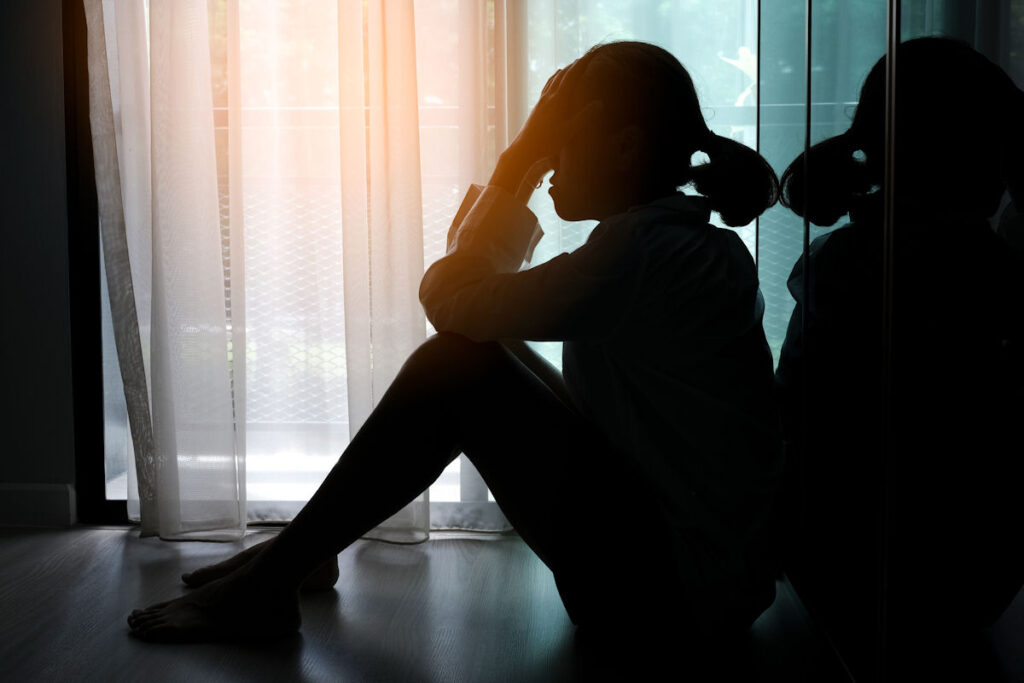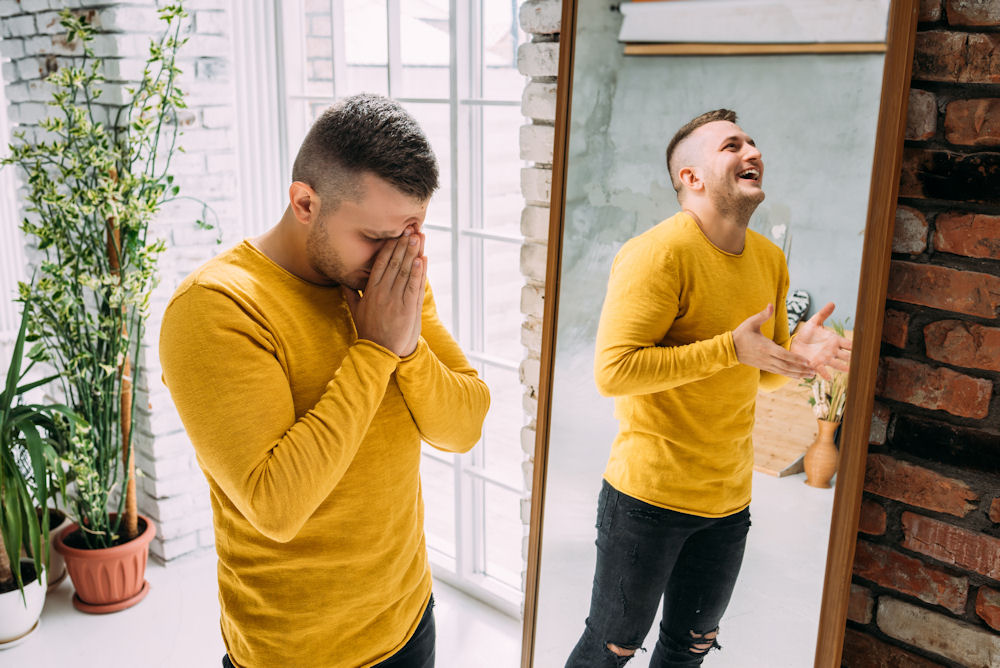 Bipolar disorder, also known as manic-depressive illness, is a mental health condition that causes extreme shifts in mood, energy, and behavior. People with bipolar disorder may experience periods of intense euphoria and increased energy (known as mania) followed by episodes of depression. These mood swings can significantly affect daily life and relationships.
Bipolar disorder, also known as manic-depressive illness, is a mental health condition that causes extreme shifts in mood, energy, and behavior. People with bipolar disorder may experience periods of intense euphoria and increased energy (known as mania) followed by episodes of depression. These mood swings can significantly affect daily life and relationships.
Alcohol abuse is another common problem that affects many people. It is a pattern of drinking that leads to harmful consequences, such as health problems, relationship issues, and difficulties at work or school.
Unfortunately, there is a strong correlation between bipolar disorder and alcohol abuse. Studies have shown that up to 50% of people with bipolar disorder have a co-occurring alcohol use disorder.
What is the Link Between Bipolar Disorder and Alcohol Abuse?
Bipolar disorder and alcohol abuse have a complex and intertwined relationship. Many individuals with bipolar disorder also struggle with alcohol abuse, and studies have shown that the prevalence of substance abuse is higher in those with bipolar disorder compared to the general population.
What is Alcohol Abuse?
Alcohol abuse is a pattern of drinking that leads to harmful consequences. It can range from occasional binge drinking to excessive and regular consumption of alcohol. Alcohol abuse can lead to physical, mental, and social problems, with health implications.
Why Do Individuals Self-Medicate with Alcohol for Extremes in Mood?
One of the main reasons for this correlation is that individuals with bipolar disorder may turn to alcohol as a means of self-medication. The intense mood swings and emotional instability associated with bipolar disorder can be overwhelming, and some individuals may use alcohol as a way to numb their emotions or cope with their symptoms, which can create a dangerous cycle, as alcohol is a depressant and can worsen symptoms of depression in individuals with bipolar disorder.
What is Bipolar Disorder?
Bipolar disorder is a mental health condition that affects millions of people worldwide. It is characterized by extreme shifts in mood, energy, and behavior. There are three main types of bipolar disorder:
- Bipolar I Disorder: Individuals with this type experience manic episodes lasting at least 7 days or severe manic symptoms that require immediate hospitalization.
- Bipolar II Disorder: This type involves a pattern of depressive and hypomanic episodes (less severe than manic episodes).
- Cyclothymic Disorder: People with this type experience numerous periods of hypomanic symptoms and mild depression for at least 2 years.
Bipolar disorder is a chronic condition that requires long-term management and treatment. Without proper care, it can significantly impact daily life and relationships.
What Are Impulsive Behavior Tendencies?
Impulsive behavior tendencies are another factor that contributes to the link between bipolar disorder and alcohol abuse. Many individuals with bipolar disorder experience impulsive urges, such as engaging in risky behaviors or making impulsive decisions without considering the consequences. Alcohol can lower inhibitions and make it easier for someone to act on these impulsive urges, leading to increased alcohol use and potential substance abuse.
How Does Alcohol Affect Bipolar Disorder?
Alcohol can have a significant impact on individuals with bipolar disorder. It can worsen symptoms and make it challenging to manage the condition effectively. Here are some ways in which alcohol can affect bipolar disorder:
- Increased risk of manic episodes: Alcohol is a mood-altering substance that can exacerbate existing symptoms or trigger new ones. Drinking alcohol can increase the risk of manic episodes and make it challenging to regulate mood swings.
- Interferes with medication: Many individuals with bipolar disorder take medication to manage their symptoms. Alcohol can interact with these medications and reduce their effectiveness, making it harder to control symptoms.
- Increases suicidal thoughts: Alcohol is a depressant that can worsen feelings of hopelessness and despair, leading to an increased risk of suicidal thoughts and behaviors.
How Can Alcohol Affect the Treatment of Bipolar Disorder?
Alcohol abuse can also complicate treatment for bipolar disorder. It can interact with medications prescribed for bipolar disorder, making them less effective or even dangerous.
Alcohol use can also worsen symptoms of bipolar disorder and make it difficult to diagnose and treat the condition. It can affect an individual’s judgment, impulse control, and adherence to treatment plans. Furthermore, withdrawal symptoms from alcohol can mimic or exacerbate symptoms of bipolar disorder, making recovery difficult.
Additionally, substance abuse can interfere with therapy and often becomes a barrier to effective treatment. It can also mask symptoms of bipolar disorder, making it challenging for healthcare professionals to assess and treat the condition.
Therefore, individuals with bipolar disorder need to seek help and address any issues with alcohol abuse to effectively manage their symptoms and improve their overall quality of life.
Why Are Individuals with Bipolar Disorder More Prone to Alcohol Abuse?
 There are a few possible explanations for why individuals with bipolar disorder are more prone to alcohol abuse. One reason could be that people with bipolar disorder may turn to alcohol as a means of self-medicating. They may use alcohol to cope with their intense mood swings, hoping it will provide temporary relief from symptoms such as depression or mania.
There are a few possible explanations for why individuals with bipolar disorder are more prone to alcohol abuse. One reason could be that people with bipolar disorder may turn to alcohol as a means of self-medicating. They may use alcohol to cope with their intense mood swings, hoping it will provide temporary relief from symptoms such as depression or mania.
Another reason could be genetics. Research has shown that individuals with bipolar disorder may have a genetic predisposition to alcohol abuse or addiction, which means they are more likely to develop an alcohol use disorder if they consume alcohol.
Additionally, environmental factors such as stress and trauma can also play a role in the development of both bipolar disorder and alcohol abuse. Individuals with bipolar disorder may experience higher levels of stress due to their condition, making them more susceptible to turning to alcohol as a coping mechanism.
Treatment Programs
Fortunately, there are treatment programs available that can effectively address the co-occurring disorders of bipolar disorder and alcohol abuse. These programs often use a combination of medication, therapy, and support groups to help individuals manage their symptoms and develop healthier coping mechanisms.
One of the first steps in treating alcohol abuse and bipolar disorder is addressing any physical dependence through alcohol detoxification. This process involves safely removing all traces of alcohol from the body in an inpatient or outpatient setting.
Residential treatment programs for co-occurring disorders offer a structured environment with 24-hour support and care. These programs often include individual therapy, group therapy, medication management, and other specialized treatments to address both bipolar disorder and alcohol abuse.
Dual diagnosis programs specifically focus on treating individuals with co-occurring disorders, such as bipolar disorder and alcohol abuse. These programs can provide a holistic approach to treatment, addressing both the mental health and substance abuse aspects of these disorders.
Therapy Programs
Individual therapy, also known as psychotherapy, is a component of treatment for bipolar disorder and alcohol abuse. It allows individuals to work one-on-one with a therapist to address underlying issues, develop coping strategies, and manage symptoms.
Group therapy brings together individuals who are struggling with similar challenges. It provides a supportive environment where participants can share their experiences and learn from each other while receiving guidance from a therapist.
Cognitive-behavioral therapy is a common form of therapy used to treat bipolar disorder and alcohol abuse. It helps individuals identify and change negative thought patterns and behaviors contributing to their symptoms.
Dialectical behavior therapy is a type of therapy that has shown success in treating bipolar disorder and substance abuse. It focuses on teaching individuals skills to manage intense emotions, regulate impulsivity, and improve relationships.
Motivational interviewing is a collaborative approach to treatment that helps individuals resolve ambivalence and move toward positive change. It can be an effective tool for addressing both bipolar disorder and alcohol abuse.
In addition to therapy programs, support groups can also play a crucial role in the treatment of bipolar disorder and alcohol abuse. These groups provide a sense of community, understanding, and support for individuals who are struggling with these co-occurring disorders. They offer a safe space to share experiences, receive encouragement, and learn from others.
We Offer Dual Diagnosis Treatment in Huntington Beach
California Addiction Treatment in Huntington Beach can assist individuals with bipolar disorder and alcohol abuse. We offer a comprehensive dual-diagnosis treatment program. This approach recognizes the unique challenges faced by those with both bipolar disorder and alcohol abuse and provides integrated treatment to address all aspects of their mental health. Our compassionate team of professionals provides personalized care and support to help individuals achieve lasting recovery and improved mental health. Contact us today to learn more about our treatment options and begin your journey towards a healthier, happier life.



 Bipolar disorder, also known as manic-depressive illness, is a mental health condition that causes extreme shifts in mood, energy, and behavior. People with bipolar disorder may experience periods of intense euphoria and increased energy (known as mania) followed by episodes of depression. These mood swings can significantly affect daily life and relationships.
Bipolar disorder, also known as manic-depressive illness, is a mental health condition that causes extreme shifts in mood, energy, and behavior. People with bipolar disorder may experience periods of intense euphoria and increased energy (known as mania) followed by episodes of depression. These mood swings can significantly affect daily life and relationships.

